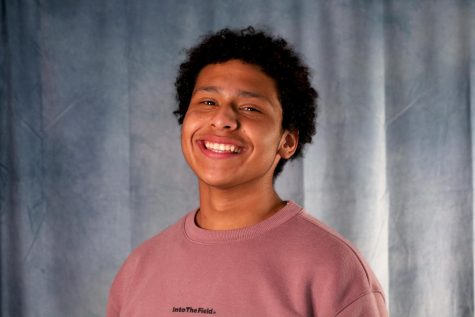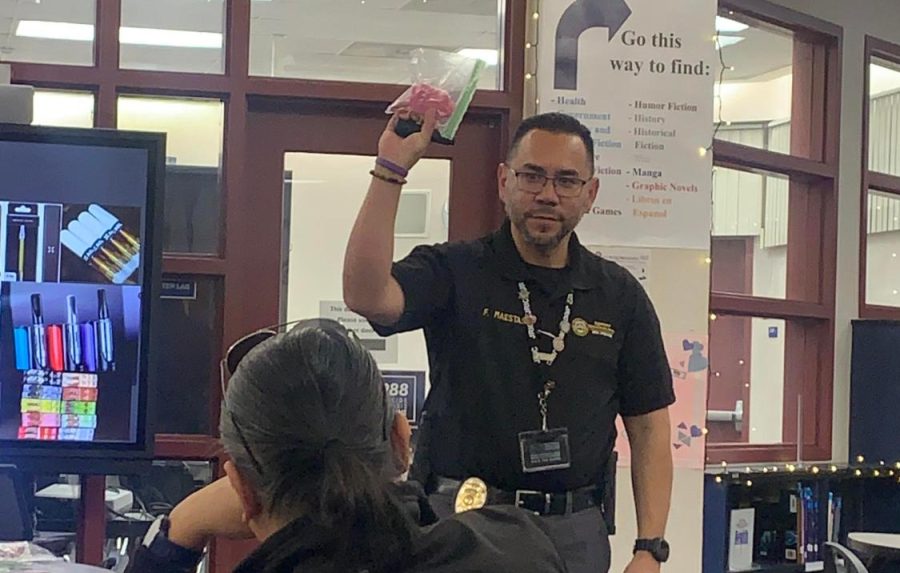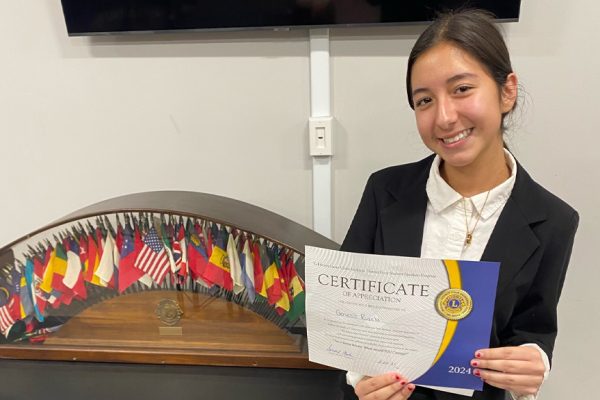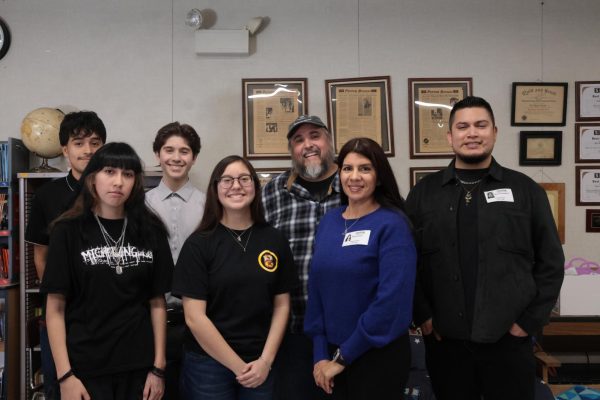Drug and weapon awareness subject of CJUSD Parent Workshop
School district and county sheriff collaborate to heighten community awareness about student experimentation with drugs and weapons
CJUSD Security Supervisor Frankie Maestras shares tips with parents about the impact of
Bloomington, CA—Considering the nature of teenagers, it’s important that not only kids, but also parents, are educated and aware of the effects and consequences of these experiments. This was the subject of the CJUSD parent workshop held in the Ruth O. Harris Middle School library on Thursday, February 7.
The 90-minute meeting, attended by roughly 15 parents, focused on student drug use and weapon possession.
Hosted by San Bernardino County Sheriff Deputy Bryan Dominguez and Colton Joint Unified School District Safety Supervisor Frankie Maestras, the event provided parents with a wide range of information, including things they may want to look out for, from their kids taking weapons to school to overdosing during school.
According to the New York Times, in 2020, guns surpassed vehicular accidents as the number 1 killer of teenagers. Currently the gun death rate for children is five in every 100,000. Meanwhile, drug overdoses are the fourth leading cause of death, surpassing suffocation in 2020 as they comprise 7% of all child deaths.
Talking about weapon and drug possession, Maestras made it clear that “if you have it on you, it’s yours.” He shared that most students in violation of rules claim the illegal items don’t belong to them.
Maestras and Dominguez shared about the substances they’ve found on students. They explained that many substances, such as edibles, can be easily disguised and easily hidden.
“You may have seen it and not even known,” Maestras said.
Multiple examples were shown to demonstrate how similar a pack of edibles may look to a regular bag of candy.
Another issue touched upon was the impact of THC consumption on students.
“Kids really don’t know how much THC they are consuming until it’s too late,” said Maestras.
Considering edibles can be made at home, once they are sold, the teens who buy them really don’t know what they might be consuming. Although it isn’t likely, it is still possible for overdose.
Many teens believe THC is “natural,” but studies have shown it has various side effects such as high blood pressure and lung issues.
Parents, like Veronica Arvesu, whose child attends Ruth O. Harris, were glad to receive this information. She shared, “It’s our job as parents to make sure that we educate our kids and make sure that they’re not taking anything from anybody.”
Harris principal Cindy Aguilar Muñoz is concerned about the effect of student experimentation. “It’s been around.” she said. “[K]ids experimented when I was in school, too. What I think the biggest difference is, is that what kids are experimenting with now is incredibly much more dangerous then what we had back in the day.”
Although Aguilar Muñoz acknowledged how complicated this epidemic has been, she maintains a positive outlook. “Things like this give me hope. With more information, more tools, and more resources we’ll be able to meet our kids where they are so that they can be happy and healthy and have the best possible education that we can provide.”
Recently, the CHS Publications Department experienced a major theft as over $20,000 in photography equipment was stolen from our studio over Spring Break. This included all cameras. Any amount you donate will help rebuild our program. Thank you!

Kloe Gonzales is currently a freshmen at Colton High School whose interests include listening to music, shopping for new clothes, and 90's movies.

Adrian Diaz is a freshman at Colton High School. He writes for the Pepper Bough.
















